Diplomats: Bernhard Kelkes and Martin van Buuren
These days we’re more interested in boosting trade than in politics, say diplomats
Words MAXMILIAN WECHSLER
| IN a BigChilli interview published in June 2016, Dutch Ambasador Karel Hartogh emphasised the importance the Netherlands places on strengthening economic ties with Thailand. “We are putting a great deal of energy into economic diplomacy and expanding the mission’s economic team,” said the ambassador. The two Dutch diplomats charged with boosting trade and facilitating business relations are Bernhard Kelkes, first secretary, and Martin van Buuren, second secretary, both of whom recently gave their own interviews. BERNHARD KELKES First Secretary Bernhard Kelkes, who celebrates his 41st birthday this month, joined the Dutch embassy in Bangkok in July 2015. He was previously posted to Hanoi, Vietnam for four years. “The new emphasis on economics is a bit of a shift; in the past we were focused more on politics,” said Mr Kelkes. “But a growing interest from Dutch companies in doing business here prompted the decision to provide more assistance in that area. Besides the ambassador, our economic team consists of Deputy Head of Mission Guillaume Teerling, who also devotes a lot of time to political affairs besides being the Head of the Economic Department; Mr Van Buuren; and myself. We also have four full-time senior local officers working on trade and two trainees. |
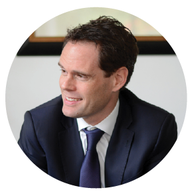
Mr Kelkes said he spends about 95 percent of his time dealing with economic issues, and finds his job very interesting, partly because economics is always intertwined with politics. “You have to keep this in mind. Otherwise, if you don’t have a clear picture of the political environment you won’t be able to get a good grasp of the state of the economy.”
Mr Kelkes gave a brief history of economic cooperation between old Siam and the Netherlands. “It started about four centuries ago with the Dutch United East India Company, which was basically the world’s first limited company. It was a trading company, and they had a trading post in Ayutthaya. Today the Baan Hollanda Museum stands on the site and gives visitors a picture of this part of our shared history.
“Dutch relations with Thailand were basically founded on trade, which now, 400 years later, continues to thrive, especially in the past few years. There’s now a steady economic growth in the Netherlands and our companies are looking to grow markets around the world, and ASEAN is definitely a market of high interest. When I was posted to Vietnam it was during the economic crisis in the European Union, and a lot of Dutch companies were retracting. But now, there’s a renewed interest from Dutch companies in ASEAN, and Thailand in particular.”
The Dutch are coming
“Thailand and the Netherlands share a lot of priority sectors, agriculture for example. Thailand is the largest exporter of rice in the world. It might surprise a lot of people to learn that the Netherlands is the second largest agricultural exporter in the world, even though we are a small country. We can exchange a lot of information on agricultural practices and technology, and the Netherlands is already exporting agriculture equipment to help produce everything from vegetables to beef. There are many other sectors where we think Dutch companies can play a good role in Thailand.
Last March 120 Dutch firms participated in two joint trade fairs, VIV Asia and HORTI Asia, held at the Bangkok International Trade & Exhibition Centre [BITEC]. About 53,000 visitors came during the two-day fair.
“Regularly we receive trade delegations from the Netherlands. Individual companies send representatives and we organize meetings for them with potential business partners and government organisations. We have a very close relationship with the BOI and deal with them a lot, for example to learn what kind of incentives they will offer to a Dutch company that wants to open a factory in Thailand.
“We also communicate regularly with various Thai ministries. For example, if a Dutch company wants to invest in the energy sector then we will go together with them to the Ministry of Energy to discuss opportunities and see what obstacles need to be dealt with. We have very good relations with other Thai ministries, such as the Ministry of Agriculture and Cooperatives, and also close ties and frequent contacts with specialized Thai agencies such as the Department of Water Resources and Royal Irrigation Department.
“We have a lot of what we call ‘trade requests’ from Dutch companies wanting support from the embassy to get established in Thailand. We are seeing a very steep increase in the number of trade requests; it doubles almost every year. Last year we had almost 900 requests for support in Thailand, higher than any other Dutch diplomatic mission in the region.
“The companies are interested in information on specific sectors. They ask about the feasibility of selling certain products here, or about the rules and regulations which would apply. There are a lot of legal queries.
“We estimate that around 300 Dutch companies are already here, including big ones like Heineken, Friesland Campina (Foremost), Unilever, Shell and Philips. We are pleased with this large presence. You can see in EU trade and investment figures that the Netherlands is the largest EU investor in Thailand, and we are the 3rd EU trading partner after Germany and the United Kingdom. We are not doing badly for a small country.
“The biggest Dutch company in Thailand is Unilever, which employs thousands of workers. Some other major Dutch companies doing business here are NXP or Corbion in Rayong, which is mainly producing plastic out of sugarcane. Royal Vopak is working with PTT in a joint venture with Thai Tank Terminal company. Royal Vopak is a very old Dutch company which last year celebrated its 400th birthday.
“A number of Dutch companies have been here for a very long time, but we now see more new small and medium-size companies coming to explore the opportunities. Many of these are located in Rayong Industrial Estate and near Chiang Mai, where we have some agricultural and high-technology companies.” Mr Kelkes said.
Mr Kelkes gave a brief history of economic cooperation between old Siam and the Netherlands. “It started about four centuries ago with the Dutch United East India Company, which was basically the world’s first limited company. It was a trading company, and they had a trading post in Ayutthaya. Today the Baan Hollanda Museum stands on the site and gives visitors a picture of this part of our shared history.
“Dutch relations with Thailand were basically founded on trade, which now, 400 years later, continues to thrive, especially in the past few years. There’s now a steady economic growth in the Netherlands and our companies are looking to grow markets around the world, and ASEAN is definitely a market of high interest. When I was posted to Vietnam it was during the economic crisis in the European Union, and a lot of Dutch companies were retracting. But now, there’s a renewed interest from Dutch companies in ASEAN, and Thailand in particular.”
The Dutch are coming
“Thailand and the Netherlands share a lot of priority sectors, agriculture for example. Thailand is the largest exporter of rice in the world. It might surprise a lot of people to learn that the Netherlands is the second largest agricultural exporter in the world, even though we are a small country. We can exchange a lot of information on agricultural practices and technology, and the Netherlands is already exporting agriculture equipment to help produce everything from vegetables to beef. There are many other sectors where we think Dutch companies can play a good role in Thailand.
Last March 120 Dutch firms participated in two joint trade fairs, VIV Asia and HORTI Asia, held at the Bangkok International Trade & Exhibition Centre [BITEC]. About 53,000 visitors came during the two-day fair.
“Regularly we receive trade delegations from the Netherlands. Individual companies send representatives and we organize meetings for them with potential business partners and government organisations. We have a very close relationship with the BOI and deal with them a lot, for example to learn what kind of incentives they will offer to a Dutch company that wants to open a factory in Thailand.
“We also communicate regularly with various Thai ministries. For example, if a Dutch company wants to invest in the energy sector then we will go together with them to the Ministry of Energy to discuss opportunities and see what obstacles need to be dealt with. We have very good relations with other Thai ministries, such as the Ministry of Agriculture and Cooperatives, and also close ties and frequent contacts with specialized Thai agencies such as the Department of Water Resources and Royal Irrigation Department.
“We have a lot of what we call ‘trade requests’ from Dutch companies wanting support from the embassy to get established in Thailand. We are seeing a very steep increase in the number of trade requests; it doubles almost every year. Last year we had almost 900 requests for support in Thailand, higher than any other Dutch diplomatic mission in the region.
“The companies are interested in information on specific sectors. They ask about the feasibility of selling certain products here, or about the rules and regulations which would apply. There are a lot of legal queries.
“We estimate that around 300 Dutch companies are already here, including big ones like Heineken, Friesland Campina (Foremost), Unilever, Shell and Philips. We are pleased with this large presence. You can see in EU trade and investment figures that the Netherlands is the largest EU investor in Thailand, and we are the 3rd EU trading partner after Germany and the United Kingdom. We are not doing badly for a small country.
“The biggest Dutch company in Thailand is Unilever, which employs thousands of workers. Some other major Dutch companies doing business here are NXP or Corbion in Rayong, which is mainly producing plastic out of sugarcane. Royal Vopak is working with PTT in a joint venture with Thai Tank Terminal company. Royal Vopak is a very old Dutch company which last year celebrated its 400th birthday.
“A number of Dutch companies have been here for a very long time, but we now see more new small and medium-size companies coming to explore the opportunities. Many of these are located in Rayong Industrial Estate and near Chiang Mai, where we have some agricultural and high-technology companies.” Mr Kelkes said.
THAI-DUTCH TRADE OVERVIEW
By Bernhard Kelkes
IN 2016 the Netherlands remained Thailand’s largest EU investor (US$ 11.4 billion) accounting for 40% of total EU foreign direct investment. While the competitive Dutch fiscal climate often shores up investment statistics, last year’s figures include several Dutch companies which started up in Thailand or expanded their production facilities.
The Netherlands also remained Thailand’s third biggest EU trading partner (Thai exports to the Netherlands, US$ 4.2 billion, Dutch imports in Thailand, US$ 988 million) after Germany and the UK. While the Thai figures show less than a 1% decrease in exports to the Netherlands, the Dutch statistics office (CBS) is more positive, showing an 8.6% increase in imports and 1.9% increase in exports.
The Netherlands is the 5th largest EU exporter to Thailand. While Thai exports to the Netherlands increased significantly compared to most other EU member states, Dutch exports to Thailand increased at a much slower pace.
Dutch interest in ASEAN
Across the ASEAN region Dutch trade and investment is growing and embassies see a clear increase in the number of requests for support by Dutch companies. Most events focusing on the ASEAN region are well attended by Dutch entrepreneurs.
Agriculture continues to be our main sector, but other sectors, such as water, life sciences, energy and the creative industries, are catching up. A recently held survey demonstrated that participating entrepreneurs are very satisfied with our services, grading our services.
By Bernhard Kelkes
IN 2016 the Netherlands remained Thailand’s largest EU investor (US$ 11.4 billion) accounting for 40% of total EU foreign direct investment. While the competitive Dutch fiscal climate often shores up investment statistics, last year’s figures include several Dutch companies which started up in Thailand or expanded their production facilities.
The Netherlands also remained Thailand’s third biggest EU trading partner (Thai exports to the Netherlands, US$ 4.2 billion, Dutch imports in Thailand, US$ 988 million) after Germany and the UK. While the Thai figures show less than a 1% decrease in exports to the Netherlands, the Dutch statistics office (CBS) is more positive, showing an 8.6% increase in imports and 1.9% increase in exports.
The Netherlands is the 5th largest EU exporter to Thailand. While Thai exports to the Netherlands increased significantly compared to most other EU member states, Dutch exports to Thailand increased at a much slower pace.
Dutch interest in ASEAN
Across the ASEAN region Dutch trade and investment is growing and embassies see a clear increase in the number of requests for support by Dutch companies. Most events focusing on the ASEAN region are well attended by Dutch entrepreneurs.
Agriculture continues to be our main sector, but other sectors, such as water, life sciences, energy and the creative industries, are catching up. A recently held survey demonstrated that participating entrepreneurs are very satisfied with our services, grading our services.
FTA needed
Regarding restrictions against Thailand imposed by the EU after the 2014 coup, Mr Kelkes conceded that this puts restrains on the trade relations, leading to a delay in the start of the negotiations on a free trade agreement (FTA).
“A Thai-EU FTA would definitely benefit trade and investment on both sides. It would also include the protection of copyrights and patterns. This is very important for Dutch and other European companies when they are looking at different countries in Southeast Asia. Vietnam has an FTA with the EU and so does Singapore.
“Many Dutch companies present in Thailand are members of the Netherlands-Thai Chamber of Commerce (NTCC). The office and meeting place is at the embassy. We have a close partnership with the NTCC and collaborate on events and business support. We also use the ambassador’s beautiful residence to host all kinds of business events. The NTCC has over 300 members, not all of them Dutch companies. Thai companies which have business in the Netherlands or want to do business there can apply for membership as well. Another Thai-Dutch business association focuses on smaller companies.
“A large number of the CEOs and Managing Directors of Dutch companies based in Thailand are Dutch nationals who reside here. They are generally satisfied with how things are going in Thailand. At the same time we see room for improvement when dealing with red tape and procedures around ownership, taxations, customs and visa.
“Thailand is becoming more and more a hub in the region because it has better infrastructure and communications than most other countries. In terms of infrastructure and bureaucracy Singapore comes out on top in comparison with Thailand, but it is very expensive to live there.
“Overall, Thailand is very attractive, and the Thai government is taking action to improve the business and investment climate. They are trying to improve the business and investment climate to attract companies to come here, particularly in sectors where new technology is needed, like agriculture and logistics.”
Corporate responsibility and sustainability
Mr Kelkes praised the skills and workmanship of the Thai labour force, and he said that Dutch companies are keen to show that they value their employees. “In general, my feeling is that our companies in Thailand are doing very well as far as the treatment of the workers is concerned. Dutch companies want to keep their workers. They put a lot of effort into training staff, and workers are paid a good salary. Benefits such as health insurance are good as well. We treat workers well and they tend to stay as a result.
“Many companies from the Netherlands score very high in corporate social responsibility (CSR) international rankings. We are trying to set an example of how businesses treat their staff. The embassy is very much involved in promoting a responsible and sustainable business model. By 2050 the world will have nine billion people and we have to find a way to feed them all. At the same time we are facing incredible pressures due to climate change. The ASEAN region is one of the world’s critical regions in terms of climate change effects. We want to promote sustainability within the local business community in order to raise the standard of living, the environment and profitability.
“We feel that Thailand needs to get out of the middle income track and develop a more knowledge-based economy. What you see is that a lot of companies in labour intensive industries are slowly moving to other countries in the region where the wages are lower, like Vietnam and Myanmar. If the business climate is not good, then companies may decide not to come here. To avoid this, Thailand has to add value to its economy by attracting more high-technology companies.”
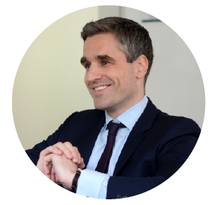
MARTIN van BUUREN
Martin van Buuren, 35, joined the Dutch embassy in Bangkok in 2015. He served the Dutch missions in Prague, Moscow, and Teheran and also participated in the recovery of Malaysia Airlines Flight 17 at the crash site in eastern Ukraine. The passenger aircraft was flying from Amsterdam to Kuala Lumpur when it was shot down on July 17, 2014. He is a diplomat with considerable language skills – he can speak fluent Dutch, Czech, English, Russian, German, reasonable Italian, as well as basic Farsi and Thai.
“My work on economic and trade issues at the embassy is focused on a number of sectors, but especially the water sector. This includes not only classic water management, including prevention of floods, but also wastewater management. We are also very interested in the maritime industry. In fact we are working on studies which are intended to map opportunities for Dutch cooperation with Thai parties in the waste water and maritime sectors. These will be soon finalised and the findings and recommendations will be presented at various upcoming events.
“The decision to create a stronger Dutch presence in the Thai maritime sector, especially regarding shipbuilding and repairing, was made last year. The first step in that direction was organizing a conference in which a large number of Dutch companies participated including some of the most renowned Dutch shipbuilding and repair companies. Thai authorities like the Port Authority, the Martine Department and other agencies were also involved. In addition, representatives participated from the Thai Shipbuilding and Repairing Association, the Marine Department, the Royal Thai Navy and from some large local shipyards. It was a very successful event. As a follow-up a maritime business delegation consisting of several world class Dutch companies will visit shipyards in Thailand this coming May.”
The Dutch are globally recognised for a long history of successful water management, and Mr Van Buuren said his government and the Dutch private sector is eager to share expertise with Thailand. “We are very active here in that field. Last year a delegation of Dutch water experts, specialising in drainage optimisation met with the Bangkok Governor, the Department of Water Resources, the Royal Irrigation Department and other important Thai water management authorities.
“It’s no secret that Bangkok’s drainage challenges contribute considerably to periodic flooding. That’s why last year Ambassador Karel Hartogh agreed with the Bangkok Governor and the Director General of the Department of Water Resources to enhance our bilateral cooperation. The Dutch delegation visited several sites in Bangkok and spoke to most of the Thai key stakeholders. We look forward to present the final report of the expert mission to the Bangkok Governor and Director General of the Department of Water Resources in the coming weeks.
“In addition we are busy with an upcoming seminar on waste water treatment which is being organised with the Water Institute for Sustainability (falls under the Thai Federation of Industries). There will also be a Dutch company pavilion at the Thai Water Expo at BITEC in June, said Mr Van Buuren. He added that in all these areas his team is trying constantly to support Dutch companies to make them visible in Thailand and find areas of cooperation with Thai companies, Thai authorities and knowledge institutes.
Flood management
Mr Van Buuren said the Thai government has made good strides in the area of flood management, and the Netherlands stands ready to offer support wherever possible. “There are many factors which contribute to the floods in Thailand. When you look at what has changed after the big floods in 2011 you see that there was already quite a lot investment in flooding infrastructure. In Bangkok a number of water tunnels have been built and some of the dykes have been improved. There has been work done on improving the retention of the water reservoirs to make sure that in the rainy season the water is captured and is kept there. During the floods some of the reservoirs were damaged but some of these have now been repaired. Thailand has solid technical expertise in this area already.
“One big way Thailand can optimise its water management is by streamlining and strengthening water governance, mainly the coordination amongst all the players in the flood and water management field. There are now more than 20 institutes dealing with water management in Thailand. The Thai government acknowledges that greater coordination is needed and is working on that. The Water Act currently under consideration will be an important step in this regard. Prime Minister General Prayut Chan-o-cha is very serious about tackling water management problems and has been actively promoting cooperation within the government. Ambassador Karel Hartogh has discussed water management on several occasions with the prime minister. Gen Prayut has indicated that he would very much welcome cooperation with the Netherlands.
“Water management is always very complicated. There are many reasons why floods occur. In Thailand key factors are the magnitude of the water runoff from the North, high tide, drainage issues, and rainfall amounts, in a given period of time, which can often be unexpectedly high in some areas. Infrastructure has as much to do with flooding as the weather conditions and other factors mentioned.
Water management is in the veins and genes of the Dutch. We are helping many countries, including the United States, in New Orleans, Louisiana. We have worked with Myanmar on flooding in the Mekong Delta, which is an annual problem. We try to help to find the right system to prevent these kinds of floods. We hope that we can make our expertise available to the Thai institutions and assist them in the field of drainage and flood prevention.
The Thai government has its own water management experts, and many of them are alumni of Dutch universities and institutes. There are quite a few Thai officials who studied in the Netherlands, had training there or have cooperated with Dutch experts in the past. An excellent basis to enhance our bilateral cooperation in this field.”
Thinking big
In closing, Mr Van Buuren said there are other areas in the maritime sector besides shipbuilding and repairing that hold good opportunities to develop, and the Dutch are more than willing to lend a hand. Chief among these are deep-sea ports, including dredging. “Rotterdam is the biggest port in Europe. We have the expertise to plan and develop such a project under what is called the ‘landlord model’. Basically this means that the port authority acts as the regulatory body and as a landlord, while port operations (especially cargo handling) are carried out by private companies. This kind of port model has been implemented in many places around the world, including in Hong Kong and Singapore.
“Logistics is the key. The Netherlands is known as the ‘gateway to Europe’, meaning it’s an important logistical hub for the rest of Europe. Thailand is developing in the same way as a gateway for ASEAN. There is tremendous potential and we would like to collaborate.
“The potential for cooperation between the Netherlands and Thailand is huge. Both our economies have had their challenges in the last few years, but it’s very likely that things will be improving in the future.
“Another area where cooperation makes good sense is the energy sector, both oil and gas and renewable energy. The embassy can help show Dutch companies what Thailand has to offer – explore the markets and consider what the Dutch government can do to help support our businesses. But in the end it is up to the companies to decide whether or not to invest here. Obviously there is already a lot of interest, but we think there are things the Thai government could and should do to create a better business atmosphere and make Thailand even more attractive for Dutch companies.”
Martin van Buuren, 35, joined the Dutch embassy in Bangkok in 2015. He served the Dutch missions in Prague, Moscow, and Teheran and also participated in the recovery of Malaysia Airlines Flight 17 at the crash site in eastern Ukraine. The passenger aircraft was flying from Amsterdam to Kuala Lumpur when it was shot down on July 17, 2014. He is a diplomat with considerable language skills – he can speak fluent Dutch, Czech, English, Russian, German, reasonable Italian, as well as basic Farsi and Thai.
“My work on economic and trade issues at the embassy is focused on a number of sectors, but especially the water sector. This includes not only classic water management, including prevention of floods, but also wastewater management. We are also very interested in the maritime industry. In fact we are working on studies which are intended to map opportunities for Dutch cooperation with Thai parties in the waste water and maritime sectors. These will be soon finalised and the findings and recommendations will be presented at various upcoming events.
“The decision to create a stronger Dutch presence in the Thai maritime sector, especially regarding shipbuilding and repairing, was made last year. The first step in that direction was organizing a conference in which a large number of Dutch companies participated including some of the most renowned Dutch shipbuilding and repair companies. Thai authorities like the Port Authority, the Martine Department and other agencies were also involved. In addition, representatives participated from the Thai Shipbuilding and Repairing Association, the Marine Department, the Royal Thai Navy and from some large local shipyards. It was a very successful event. As a follow-up a maritime business delegation consisting of several world class Dutch companies will visit shipyards in Thailand this coming May.”
The Dutch are globally recognised for a long history of successful water management, and Mr Van Buuren said his government and the Dutch private sector is eager to share expertise with Thailand. “We are very active here in that field. Last year a delegation of Dutch water experts, specialising in drainage optimisation met with the Bangkok Governor, the Department of Water Resources, the Royal Irrigation Department and other important Thai water management authorities.
“It’s no secret that Bangkok’s drainage challenges contribute considerably to periodic flooding. That’s why last year Ambassador Karel Hartogh agreed with the Bangkok Governor and the Director General of the Department of Water Resources to enhance our bilateral cooperation. The Dutch delegation visited several sites in Bangkok and spoke to most of the Thai key stakeholders. We look forward to present the final report of the expert mission to the Bangkok Governor and Director General of the Department of Water Resources in the coming weeks.
“In addition we are busy with an upcoming seminar on waste water treatment which is being organised with the Water Institute for Sustainability (falls under the Thai Federation of Industries). There will also be a Dutch company pavilion at the Thai Water Expo at BITEC in June, said Mr Van Buuren. He added that in all these areas his team is trying constantly to support Dutch companies to make them visible in Thailand and find areas of cooperation with Thai companies, Thai authorities and knowledge institutes.
Flood management
Mr Van Buuren said the Thai government has made good strides in the area of flood management, and the Netherlands stands ready to offer support wherever possible. “There are many factors which contribute to the floods in Thailand. When you look at what has changed after the big floods in 2011 you see that there was already quite a lot investment in flooding infrastructure. In Bangkok a number of water tunnels have been built and some of the dykes have been improved. There has been work done on improving the retention of the water reservoirs to make sure that in the rainy season the water is captured and is kept there. During the floods some of the reservoirs were damaged but some of these have now been repaired. Thailand has solid technical expertise in this area already.
“One big way Thailand can optimise its water management is by streamlining and strengthening water governance, mainly the coordination amongst all the players in the flood and water management field. There are now more than 20 institutes dealing with water management in Thailand. The Thai government acknowledges that greater coordination is needed and is working on that. The Water Act currently under consideration will be an important step in this regard. Prime Minister General Prayut Chan-o-cha is very serious about tackling water management problems and has been actively promoting cooperation within the government. Ambassador Karel Hartogh has discussed water management on several occasions with the prime minister. Gen Prayut has indicated that he would very much welcome cooperation with the Netherlands.
“Water management is always very complicated. There are many reasons why floods occur. In Thailand key factors are the magnitude of the water runoff from the North, high tide, drainage issues, and rainfall amounts, in a given period of time, which can often be unexpectedly high in some areas. Infrastructure has as much to do with flooding as the weather conditions and other factors mentioned.
Water management is in the veins and genes of the Dutch. We are helping many countries, including the United States, in New Orleans, Louisiana. We have worked with Myanmar on flooding in the Mekong Delta, which is an annual problem. We try to help to find the right system to prevent these kinds of floods. We hope that we can make our expertise available to the Thai institutions and assist them in the field of drainage and flood prevention.
The Thai government has its own water management experts, and many of them are alumni of Dutch universities and institutes. There are quite a few Thai officials who studied in the Netherlands, had training there or have cooperated with Dutch experts in the past. An excellent basis to enhance our bilateral cooperation in this field.”
Thinking big
In closing, Mr Van Buuren said there are other areas in the maritime sector besides shipbuilding and repairing that hold good opportunities to develop, and the Dutch are more than willing to lend a hand. Chief among these are deep-sea ports, including dredging. “Rotterdam is the biggest port in Europe. We have the expertise to plan and develop such a project under what is called the ‘landlord model’. Basically this means that the port authority acts as the regulatory body and as a landlord, while port operations (especially cargo handling) are carried out by private companies. This kind of port model has been implemented in many places around the world, including in Hong Kong and Singapore.
“Logistics is the key. The Netherlands is known as the ‘gateway to Europe’, meaning it’s an important logistical hub for the rest of Europe. Thailand is developing in the same way as a gateway for ASEAN. There is tremendous potential and we would like to collaborate.
“The potential for cooperation between the Netherlands and Thailand is huge. Both our economies have had their challenges in the last few years, but it’s very likely that things will be improving in the future.
“Another area where cooperation makes good sense is the energy sector, both oil and gas and renewable energy. The embassy can help show Dutch companies what Thailand has to offer – explore the markets and consider what the Dutch government can do to help support our businesses. But in the end it is up to the companies to decide whether or not to invest here. Obviously there is already a lot of interest, but we think there are things the Thai government could and should do to create a better business atmosphere and make Thailand even more attractive for Dutch companies.”

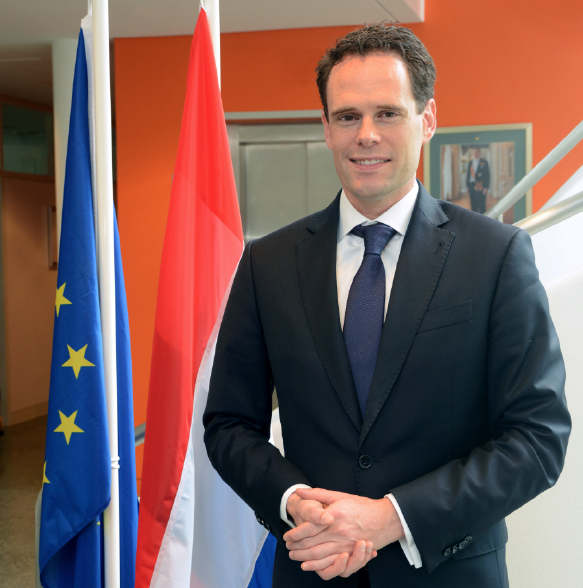
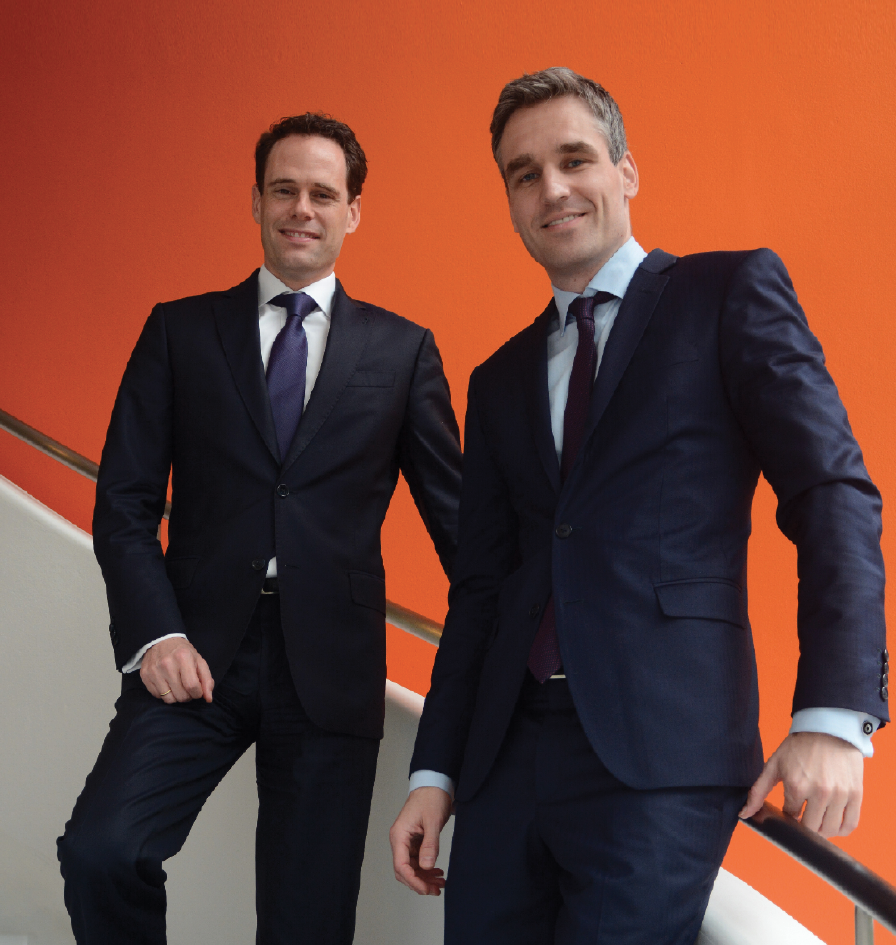
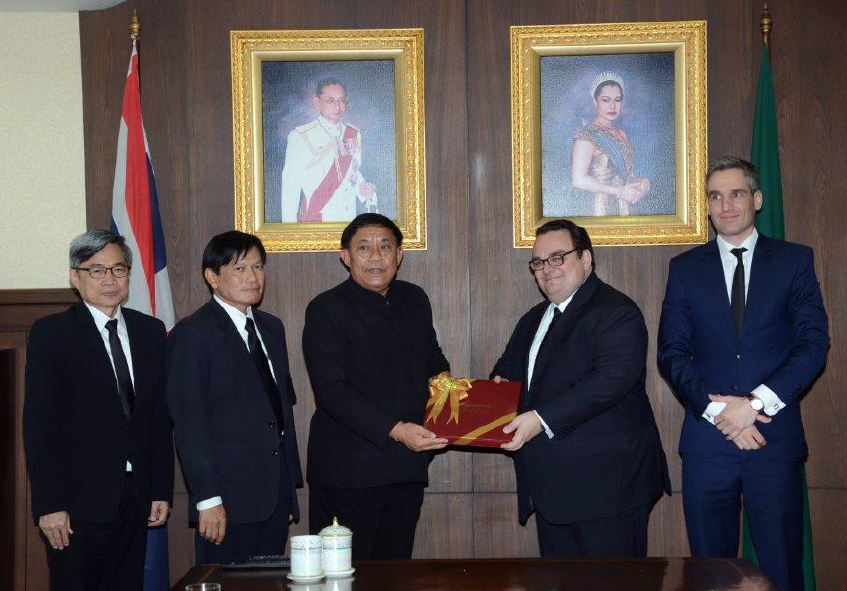
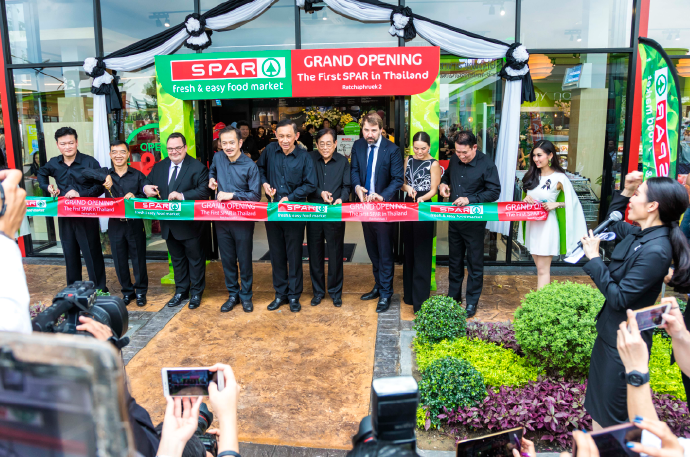
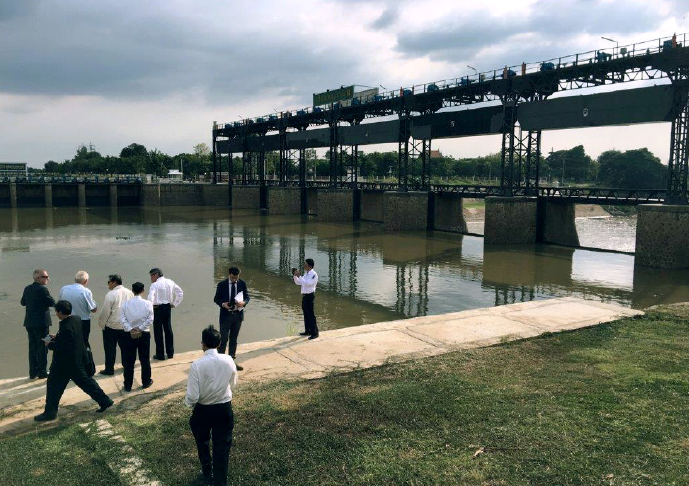
 RSS Feed
RSS Feed
















